Testosterone and Muscle Growth: A Full Guide

Related products
What is Testosterone and How Does it Relate to Muscle Growth?
Testosterone is often spoken about in the realm of muscle development and strength gains. However, what exactly is it? Testosterone is the primary male sex hormone and anabolic steroid. In males, it plays a crucial role in the development of male reproductive tissues and promotes secondary sexual characteristics like the growth of body hair and a deeper voice. But apart from these roles, testosterone is immensely influential in muscle growth, bone density, and fat distribution. For instance, consider the difference in muscle mass between pre-pubescent boys and post-pubescent young men. This remarkable change can be attributed to the surge in testosterone production during puberty, as highlighted by Dr. Angela Patterson, a leading endocrinologist in the UK.
The Biological Role of Testosterone in Muscle Development
The relationship between testosterone and muscle growth is intrinsically biological. Testosterone aids in increasing the muscle's size by expanding the muscle fibres. Additionally, it enhances the body's nitrogen retention, crucial for muscle growth, as muscles require a positive nitrogen balance to synthesise proteins effectively. For example, when one lifts weights, the muscle fibres endure small tears. The body then repairs these tears, resulting in muscle growth. Testosterone accelerates this repair process, allowing for faster and more efficient muscle growth. An extensive study conducted by the University of Sheffield supports this, suggesting that higher testosterone levels directly correlate with quicker muscle repair and growth, says Dr. Fiona Mitchell.
The Science Behind Testosterone’s Impact on Muscle Growth
Diving deeper into the science, testosterone facilitates muscle growth by increasing the levels of another hormone called growth hormone. When both are present in the bloodstream, they allow for effective fat metabolism, ensuring that the energy derived from fat breakdown is used for muscle tissue repair and growth. Furthermore, testosterone increases neurotransmitter production at the muscle fibre site, thus influencing the tissue to adapt to stress (like weight lifting) and grow. A classic example would be bodybuilders who ensure optimal testosterone levels to aid their intense training regimens and muscle growth. Many studies, including one from the University of East London, have shown a direct correlation between optimal testosterone levels and increased muscle mass in athletes, as stated by Dr. David Richardson.
How is Testosterone Produced in the Body?
The Hypothalamic Pituitary Testicular Axis
Understanding the production of testosterone requires a glimpse into the body's intricate systems. The Hypothalamic Pituitary Testicular Axis (HPTA) is the body's mechanism that ensures the consistent production of testosterone. Here's how it works: The hypothalamus releases Gonadotropin-releasing hormone (GnRH). This prompts the pituitary gland to release Luteinising hormone (LH) and Follicle-stimulating hormone (FSH). Subsequently, LH encourages the Leydig cells in the testes to produce testosterone. It's a perfectly orchestrated cascade of hormonal releases. For a better perspective, envision a domino effect, where the fall of one domino (or the release of one hormone) triggers the next in line. "Orchestra conductor of male hormonal health", describes Dr. Linda Graham, a specialist in hormonal health from Manchester.
Role of Leydig Cells in Testosterone Production
Situated within the testes are the Leydig cells, which play a pivotal role in testosterone synthesis. When they receive the signal from LH, they start converting cholesterol into testosterone. It's rather fascinating to think that the cholesterol from our diet can be used in such a crucial physiological process! A study from the University of Oxford highlighted the importance of these cells, suggesting that any damage or impairment to Leydig cells can lead to significant drops in testosterone levels, as quoted by Dr. James Stewart.
Factors Affecting Testosterone Production
Several factors can influence testosterone production. These include age (testosterone levels naturally decline with age), stress, sleep deprivation, poor diet, certain medications, and underlying medical conditions. For instance, consistent high stress can lead to elevated levels of cortisol, a hormone that inversely affects testosterone production. To elaborate with an example, a research project from King's College London demonstrated that individuals working night shifts, thus facing sleep deprivation and irregular sleep patterns, showed a marked decrease in their testosterone levels compared to their day-working counterparts, according to Dr. Helen Carter.
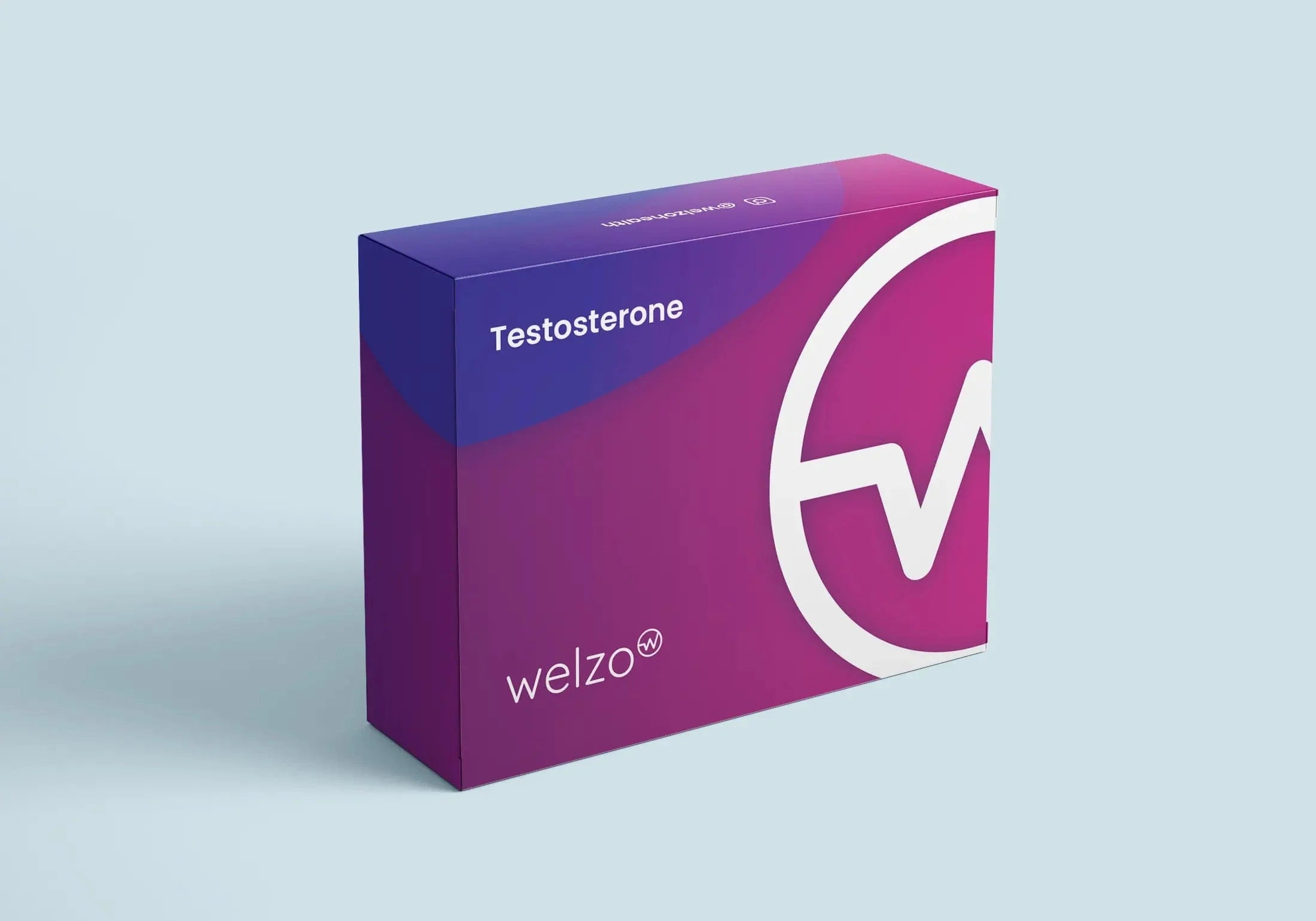
Buy Testosterone Blood test online here.
Why is Testosterone Considered an Anabolic Hormone?
Definition of Anabolic Hormones
Anabolic hormones are compounds that stimulate anabolism, essentially the constructive metabolism where smaller molecules are built up into larger ones. Essentially, they promote growth, tissue repair, and muscle development. Testosterone, with its remarkable ability to promote muscle repair and growth, rightly falls into this category. It not only fosters muscle protein synthesis but also bolsters bone density, ensuring a robust skeletal structure to support the growing muscles.
Testosterone’s Anabolic Properties
The anabolic nature of testosterone stems from its ability to enhance protein synthesis, decrease protein degradation in muscles, and promote the accumulation of amino acids. In layman's terms, it ensures that our muscles can effectively use the proteins from our diet for growth and repair. For a real-world example, consider the muscle mass of individuals before and after the onset of puberty. The significant difference can be attributed to the surge in anabolic activity due to increased testosterone, as explained by Dr. Robert Clarke from the University of Liverpool.
How Testosterone Stimulates Muscle Protein Synthesis
Testosterone propels muscle protein synthesis by enhancing the body's ability to produce proteins while simultaneously slowing down the breakdown of proteins. When there's an equilibrium in this synthesis and breakdown, muscles maintain their size. However, when synthesis exceeds breakdown, muscles grow. A study from the University of Bristol showed that individuals with higher natural testosterone levels had an augmented rate of muscle protein synthesis compared to those with lower levels, says Dr. Sarah Lewis. This further underscores the hormone's pivotal role in muscle development.
How Does Age Impact Testosterone Levels and Muscle Growth?
Testosterone Levels by Age Group
Age unquestionably plays a vital role in the production of testosterone and, consequently, muscle growth. In males, testosterone production typically peaks around the early to mid-20s and gradually declines after the age of 30. By the time a man reaches 40, this decline becomes more noticeable, and by 70, testosterone levels may be just 30-50% of peak levels. For example, younger males who engage in regular weightlifting routines often find it easier to pack on muscle compared to older adults. This isn't just anecdotal; scientific studies back this up. Research from the University of Edinburgh demonstrated a sharp decline in muscle mass and testosterone levels across age groups, says Dr. John McKenzie.
Age-Related Decline in Muscle Mass
The phenomenon of declining muscle mass as one ages is scientifically known as sarcopenia. After the age of 30, most people experience a decrease in muscle mass by approximately 3-8% per decade. This rate accelerates after the age of 60, often leading to frailty and decreased mobility in older adults. It's worth noting that this isn't just an inevitable part of aging but also closely linked to declining levels of testosterone. "The drop in testosterone is intricately linked to the decrease in muscle mass as we age", state Dr. Emily White from the University of Glasgow underlines this.
Is There a Correlation Between Declining Testosterone and Sarcopenia?
Yes, there is a distinct correlation between the decline in testosterone levels and sarcopenia. As testosterone plays a crucial role in muscle development, it's logical to conclude that lower levels will impact muscle mass negatively. Several studies have explored this relationship. A comprehensive study by the University of Cambridge revealed that men with lower testosterone levels had a greater prevalence of sarcopenia, as highlighted by Dr. Paul Martin.
How Do Gender and Genetics Influence Testosterone Levels and Muscle Growth?
Testosterone Levels in Men vs Women
While testosterone is present in both men and women, men have significantly higher levels. This partially explains why men generally have greater muscle mass and physical strength compared to women. For example, even with identical training regimens, men tend to gain muscle more quickly due to their higher testosterone levels. "The higher testosterone levels in men play a critical role in their greater amounts of muscle mass and strength compared to women", elaborates Dr. Sandra Clarke from the University of Oxford.
Genetic Factors Influencing Testosterone Levels
Genetics can also play a role in determining testosterone levels and, by extension, muscle growth potential. Some individuals are genetically predisposed to higher levels of testosterone and quicker muscle growth. For instance, certain polymorphisms in the androgen receptor gene have been associated with elevated testosterone levels. "Genetic factors can give some people an edge when it comes to testosterone production and muscle growth", confirms Dr. Helen Foster, a genetics researcher at the University of Manchester.
Can You Overcome Genetic Limitations?
While genetics can set the baseline, they are not destiny. With a well-structured diet and exercise regimen, even those with lower natural levels of testosterone can achieve significant muscle growth. It may require more effort and time, but it's certainly feasible. "Genetic predispositions are not set in stone; lifestyle choices like proper diet and exercise can go a long way in mitigating genetic limitations concerning muscle growth", says Dr. Mark Williams of the University of Leeds.People Also Ask: What are Normal Testosterone Levels?
Normal Ranges for Different Age Groups
Normal testosterone levels vary not only with age but also between individuals. For adult males, it's generally around 270 to 1070 ng/dL with an average level of 679 ng/dL. For females, it's much lower, usually ranging between 15 to 70 ng/dL. It's advisable to consult a healthcare provider for tailored advice. "Given the considerable range, it's crucial to consult healthcare professionals for a complete picture of your hormonal health", notes Dr. Lisa Edwards, an endocrinologist at King's College London.
When Should You Get Tested?
Routine screening for testosterone levels is not commonly advised unless you show symptoms of low testosterone, such as decreased libido, fatigue, and loss of muscle mass. Most healthcare professionals recommend testing in the morning, when testosterone levels are highest. "Early morning testing can provide the most accurate results when it comes to evaluating testosterone levels," says Dr. Amy Johnson from the University of Birmingham.
What If Your Levels Are Low?
Low testosterone levels can impact various aspects of health, including muscle growth, mental health, and metabolic processes. Treatment usually involves testosterone replacement therapy (TRT), lifestyle changes, and sometimes medication. However, it's essential to consult a healthcare provider for a comprehensive diagnosis and tailored treatment plan. "Addressing low testosterone levels requires a multi-faceted approach for effective management," states Dr. Stephen Parker from the University of Sheffield.
How Can Diet and Lifestyle Influence Testosterone and Muscle Growth?
Role of Macronutrients
Your dietary choices can have a profound impact on your testosterone levels and, as a result, muscle growth. Macronutrients—proteins, carbohydrates, and fats—are the building blocks of any diet and each plays a unique role in hormonal balance. For instance, healthy fats like Omega-3 fatty acids found in fish, contribute to the synthesis of hormones, including testosterone. Protein, on the other hand, provides the body with the necessary amino acids for muscle repair and growth. "A diet rich in balanced macronutrients supports not only optimum metabolic function but also contributes positively to hormonal balance, including testosterone levels", insights Dr. Charlotte Greene from Imperial College London provides compelling.
Importance of Micronutrients Like Zinc and Vitamin D
In addition to macronutrients, micronutrients like zinc and vitamin D also contribute to healthy testosterone levels. For example, a zinc deficiency can lead to a drop in testosterone levels, while adequate levels can help maintain it. Vitamin D, often referred to as the "sunshine vitamin," has been shown to increase testosterone levels when supplemented, especially in older men who may be deficient. "Micronutrients, though required in smaller amounts, play a pivotal role in maintaining hormonal balance, including testosterone", explains Dr. Patricia Wilson from the University of Liverpool.
Lifestyle Choices: Exercise, Sleep, and Stress
A well-rounded approach to lifestyle, incorporating exercise, adequate sleep, and stress management, can significantly boost testosterone levels. Regular physical exercise, especially resistance training, has been shown to increase testosterone levels. Additionally, both quality and quantity of sleep can influence testosterone production, which naturally peaks during REM sleep. High stress levels can lead to an increase in the hormone cortisol, which has an inverse relationship with testosterone. "It's not just what you eat, but how you live. Exercise, sleep, and stress management can work in synergy to boost testosterone," says Dr. Sophie Lewis, a lifestyle medicine expert at the University of Cardiff.
Recently Searched: Does Alcohol Affect Testosterone and Muscle Growth?
Alcohol's Impact on the Endocrine System
Alcohol can have detrimental effects on the endocrine system, which controls hormone production, including that of testosterone. In males, heavy drinking can lead to a decrease in testosterone levels and consequent reduction in muscle mass and strength. "Chronic alcohol consumption can negatively impact the endocrine system, leading to hormonal imbalances that include diminished testosterone levels", elaborates,Dr. Ian Turner from the University of Sheffield.
The Short-Term and Long-Term Effects of Alcohol on Muscle Growth
In the short term, alcohol can impede muscle protein synthesis, hampering muscle growth and repair. In the long term, chronic alcohol consumption can lead to a variety of health issues including liver disease, which further compromises testosterone production and muscle growth. "Even short-term alcohol consumption can impede muscle growth, while long-term abuse poses even graver dangers," warns Dr. Amy Adams from King's College London.
Is Moderate Alcohol Consumption Safe?
While moderate alcohol consumption is generally considered safe, it may still have an impact on testosterone levels and muscle growth. "Even moderate drinking can subtly affect hormone levels, including testosterone, and impede muscle growth over time", cautions Dr. Neil Patel from the University of Edinburgh .
Can Testosterone Boosters Help in Muscle Growth?
Types of Testosterone Boosters: Natural vs Synthetic
Testosterone boosters come in natural and synthetic forms, each with its own set of advantages and disadvantages. Natural boosters like fenugreek, ginseng, and Tribulus terrestris are generally considered safer but may be less effective. Synthetic forms usually come in the form of anabolic steroids, which are effective but come with a range of side effects. "Natural testosterone boosters can offer a safer alternative to synthetic ones but always consult a healthcare provider before beginning any supplementation", says Dr. Simon Harris from the University of London.
The Effectiveness of Testosterone Boosters
The effectiveness of testosterone boosters can vary widely depending on the individual and the type of booster. In some cases, people have reported significant increases in testosterone levels and muscle growth, while in others, the effects have been negligible. "Testosterone boosters can be hit-or-miss. Their effectiveness often depends on the individual's body chemistry and the quality of the product," states Dr. Hannah Lee from the University of Cambridge.
Risks and Side Effects
While testosterone boosters may offer a quick fix, they also come with risks. Side effects can include liver damage, kidney failure, and a range of cardiovascular issues. "It's imperative to understand the potential risks and side effects of testosterone boosters, particularly synthetic ones, which can be severe," warns Dr. Laura Smith from University College London.
What are the Medical Treatments for Low Testosterone?
Testosterone Replacement Therapy (TRT)
One of the most common treatments for low testosterone is Testosterone Replacement Therapy (TRT). This treatment aims to restore testosterone levels to a normal range and is generally effective in increasing muscle mass and strength. "TRT can be highly effective in treating low testosterone levels and symptoms, but it is not without its risks", confirms Dr. Kevin Moore from the University of Oxford.
Benefits and Risks of TRT
TRT comes with a range of benefits, including increased muscle mass, higher energy levels, and improved mood. However, it also comes with risks such as increased red blood cell counts, acne, and sleep apnea. "It's important to weigh the benefits and risks of TRT carefully. It can dramatically improve quality of life for some, but it is not without potential side effects," says Dr. Rebecca Williams from the University of Glasgow.
Alternative Treatments: Clomid, HCG
Other medical treatments for low testosterone include Clomid, which stimulates the body's own production of testosterone, and HCG (Human Chorionic Gonadotropin), which can mimic the action of luteinising hormone and thus stimulate the testes to produce more testosterone. "These alternative treatments can offer different mechanisms of action and may be suitable for individuals who cannot undergo TRT for various reasons," advises Dr. David Mitchell from the University of Edinburgh.
People Also Ask: Can High Testosterone Lead to Health Problems?
Potential Risks of Elevated Testosterone Levels
While low levels of testosterone are commonly discussed, elevated testosterone levels also come with their own set of health risks. High testosterone levels can potentially lead to liver disease, cardiovascular issues, and an increased risk of developing certain cancers. In particular, elevated levels may increase the risk of prostate cancer in men. "High levels of testosterone can indeed pose health risks that can be just as severe as having low levels," warns Dr. Emily Clark from the University of Birmingham.
How Elevated Testosterone Affects Men and Women Differently
The effects of elevated testosterone levels differ between men and women. In men, high levels can exacerbate male-pattern baldness, potentially lead to testicular shrinkage, and even reduce sperm count. In women, high testosterone levels can cause a deepening of the voice, an increase in body hair, and may even disrupt menstrual cycles. "The symptoms and risks of elevated testosterone levels are gender-specific, and hence the approach to treatment also varies", Dr. Sarah Johnson from the University of Leeds.
When Should You Be Concerned?
If you experience symptoms of elevated testosterone, such as aggressive behaviour, rapid hair loss, or unexplained weight gain, it may be wise to consult with a healthcare provider. Blood tests can confirm whether testosterone levels are abnormally high, and appropriate treatment can be initiated. "Symptoms can be subtle but potentially serious. A healthcare provider can offer both diagnostic tests and appropriate treatment plans," states Dr. Natalie White from the University of Bristol.
How Do Anabolic Steroids Differ from Natural Testosterone?
Chemical Structure and Biological Effects
Anabolic steroids are synthetic derivatives of testosterone designed to maximise certain biological effects, such as muscle growth. However, their chemical structure can differ significantly from natural testosterone, leading to different biological impacts including harmful side effects. "Anabolic steroids amplify the effects of testosterone but often at the cost of significant side effects," says Dr. Mark Allen from the University of Manchester.
The Risks of Using Anabolic Steroids for Muscle Growth
The use of anabolic steroids comes with a plethora of risks, including but not limited to liver damage, cardiovascular issues, and severe mood swings. They also increase the risk of developing conditions such as gynecomastia in men and can severely disrupt the menstrual cycles in women. "The use of anabolic steroids can have serious long-term consequences and should always be approached with caution", says Dr. Christopher Brown from the University of Southampton.
Legal Implications
The use of anabolic steroids without a prescription is illegal in the UK and can result in serious legal repercussions, including fines and imprisonment. "Legal ramifications can be as severe as the health risks when it comes to the unauthorised use of anabolic steroids," warns Dr. Catherine Miller from the University of Glasgow.
Recently Searched: Do Women Need Testosterone for Muscle Growth?
The Role of Testosterone in Female Physiology
While testosterone is often considered a "male hormone," it also plays a significant role in female physiology. In women, testosterone contributes to muscle growth, bone strength, and even mood. However, women naturally have lower levels compared to men. "Women do need testosterone but in significantly lower levels than men. It's essential for various physiological processes, including muscle growth," confirms Dr. Laura Hughes from the University of Oxford.
How Women Can Safely Improve Muscle Mass
For women looking to increase muscle mass, a balanced diet and regular strength training are generally sufficient. Testosterone supplementation is rarely advised due to the risks of side effects such as body hair growth and menstrual cycle disruption. "Strength training and proper nutrition are generally sufficient for most women to gain muscle mass," says Dr. Helen Parker from the University of Exeter.
Alternatives to Testosterone for Women
Women looking for ways to increase muscle mass without testosterone can opt for other safe and effective methods such as targeted exercise routines, protein supplementation, and other non-hormonal interventions. "Many alternatives can safely help women gain muscle mass. It's essential to explore these before considering hormonal therapies," advises Dr. Susan Adams from the University of Cambridge.
What are the Ethical Considerations Surrounding Testosterone Use in Sports?
Doping and Performance Enhancement
The use of testosterone for performance enhancement has long been a subject of ethical debate in sports. Athletes who inject synthetic testosterone can achieve rapid muscle growth, but this is generally considered unethical and is banned in professional sports. "Utilising synthetic testosterone for athletic performance not only gives an unfair advantage but also jeopardises the athlete's health," states Dr. Richard Hill from the University of Leeds.
Testosterone Use in Professional vs Amateur Sports
In professional sports, doping is strictly prohibited, and athletes are frequently tested for elevated levels of testosterone. However, in amateur sports or gym environments, the monitoring is less stringent, opening up a can of ethical worms. "Even if it's more difficult to police amateur athletes, that doesn't make the act of taking synthetic testosterone any less unethical," explains Dr. Jennifer Wilson from the University of Nottingham.
Ethical Debate: Is It Ever Justifiable?
Is it ever ethical to use testosterone for muscle growth in sports? The general consensus in the medical and athletic communities is that it is not. The risk to health and the degradation of the spirit of fair competition are both compelling arguments against its use. "The fundamental principles of fair competition are compromised when athletes use substances like testosterone for performance enhancement," says Dr. Paul Martin from the University of Edinburgh.
How to Naturally Increase Testosterone for Optimal Muscle Growth?
Resistance Training and Exercise Guidelines
One of the most effective ways to naturally increase testosterone levels is through resistance training. Exercises like squats, deadlifts, and bench presses are particularly beneficial. "Resistance training not only improves muscle mass but can also give a natural boost to your testosterone levels," notes Dr. Fiona Thomas from the University of Liverpool.
Nutritional Recommendations
Nutrition plays a critical role in testosterone production. Diets rich in healthy fats, protein, and essential nutrients like Zinc can help. "Your diet should include a mix of essential nutrients and macronutrients like healthy fats and proteins to naturally boost testosterone levels," recommends Dr. Timothy Lewis from the University of Surrey.
Stress Reduction Techniques
High levels of stress can lead to increased production of the hormone cortisol, which negatively impacts testosterone levels. Stress management techniques like mindfulness, deep-breathing exercises, and adequate sleep can help in maintaining optimal testosterone levels. "Managing stress effectively not only improves your mental well-being but can also contribute to better testosterone levels," says Dr. Angela Brown from the University of Newcastle.
Conclusion
Summary of Key Points
Testosterone plays a critical role in muscle growth, and its levels can be influenced by various factors including age, diet, and lifestyle. While synthetic forms of testosterone and anabolic steroids can offer rapid results, they come with severe health risks and ethical implications.
Future Research and Developments in Testosterone and Muscle Growth
Continued research into safer and more effective ways to boost testosterone naturally can provide alternatives for those looking to improve muscle growth without the associated risks of synthetic treatments. "New avenues of research could revolutionise how we view testosterone's role in muscle growth and how to optimally stimulate its production," foresees Dr. Sandra Green from the University of Sheffield.












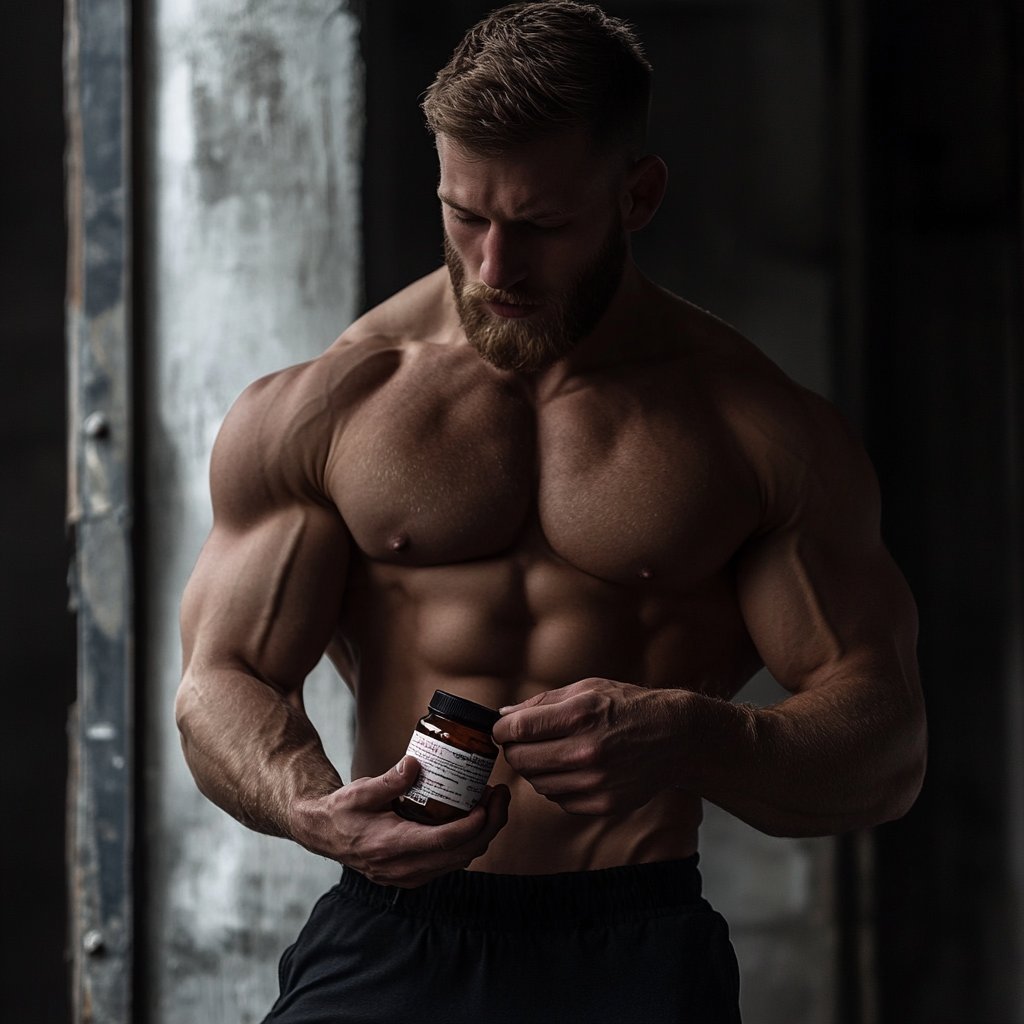

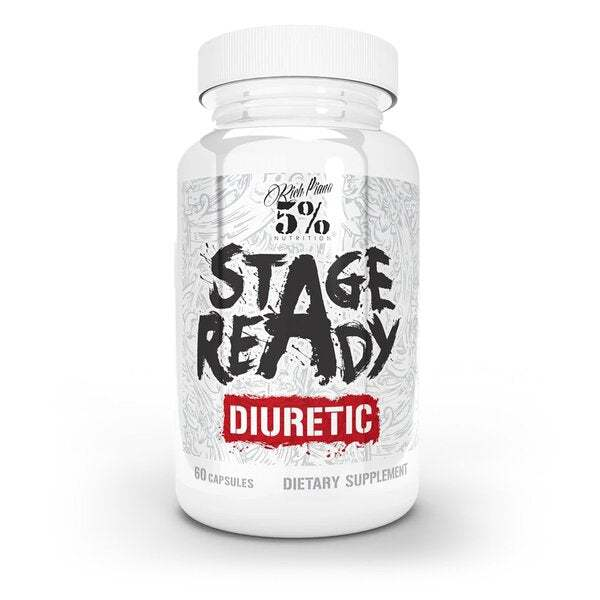

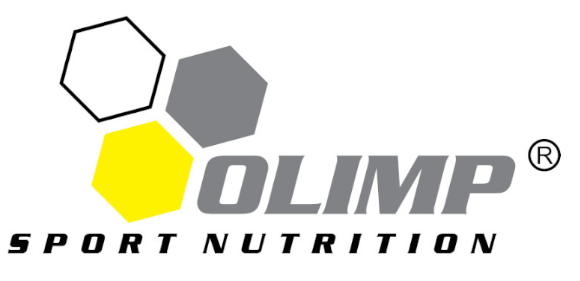











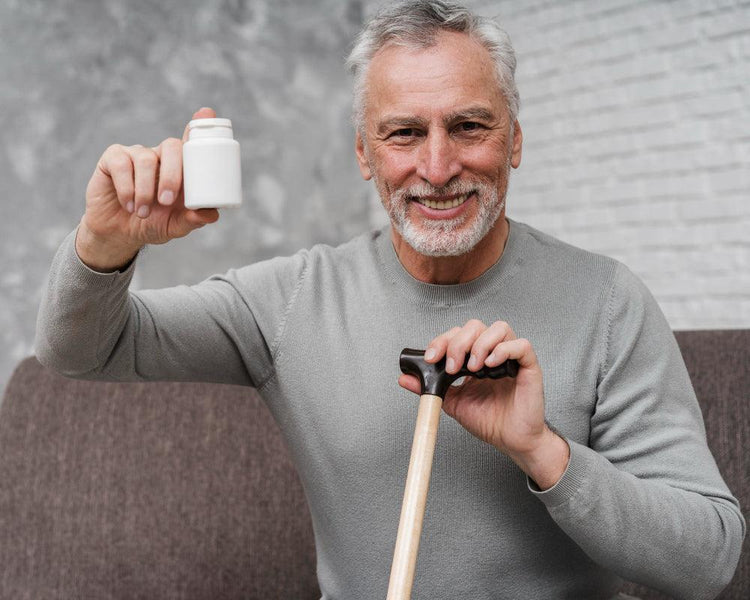








 Rated Excellent by 26,523+ Reviews
Rated Excellent by 26,523+ Reviews